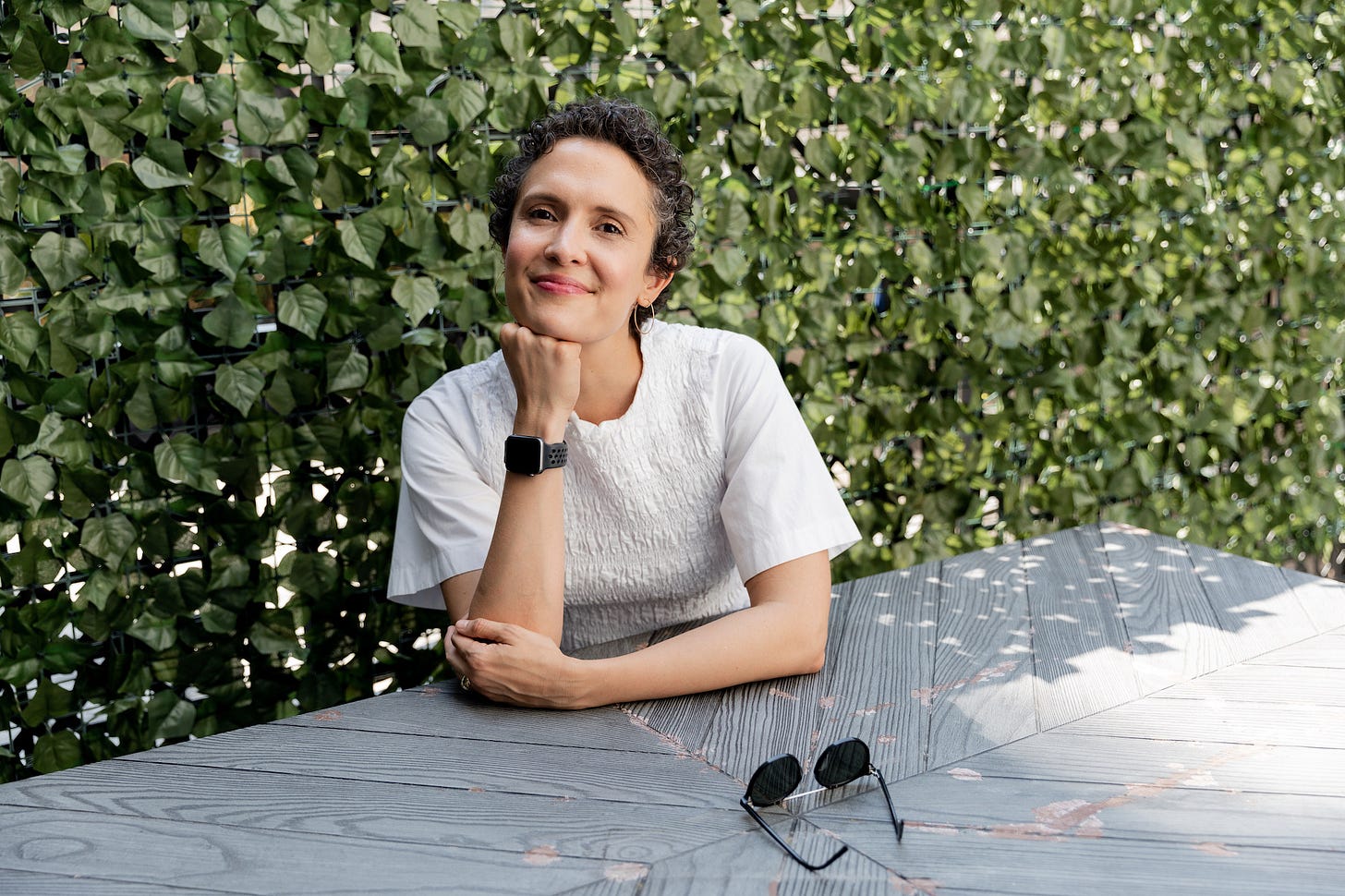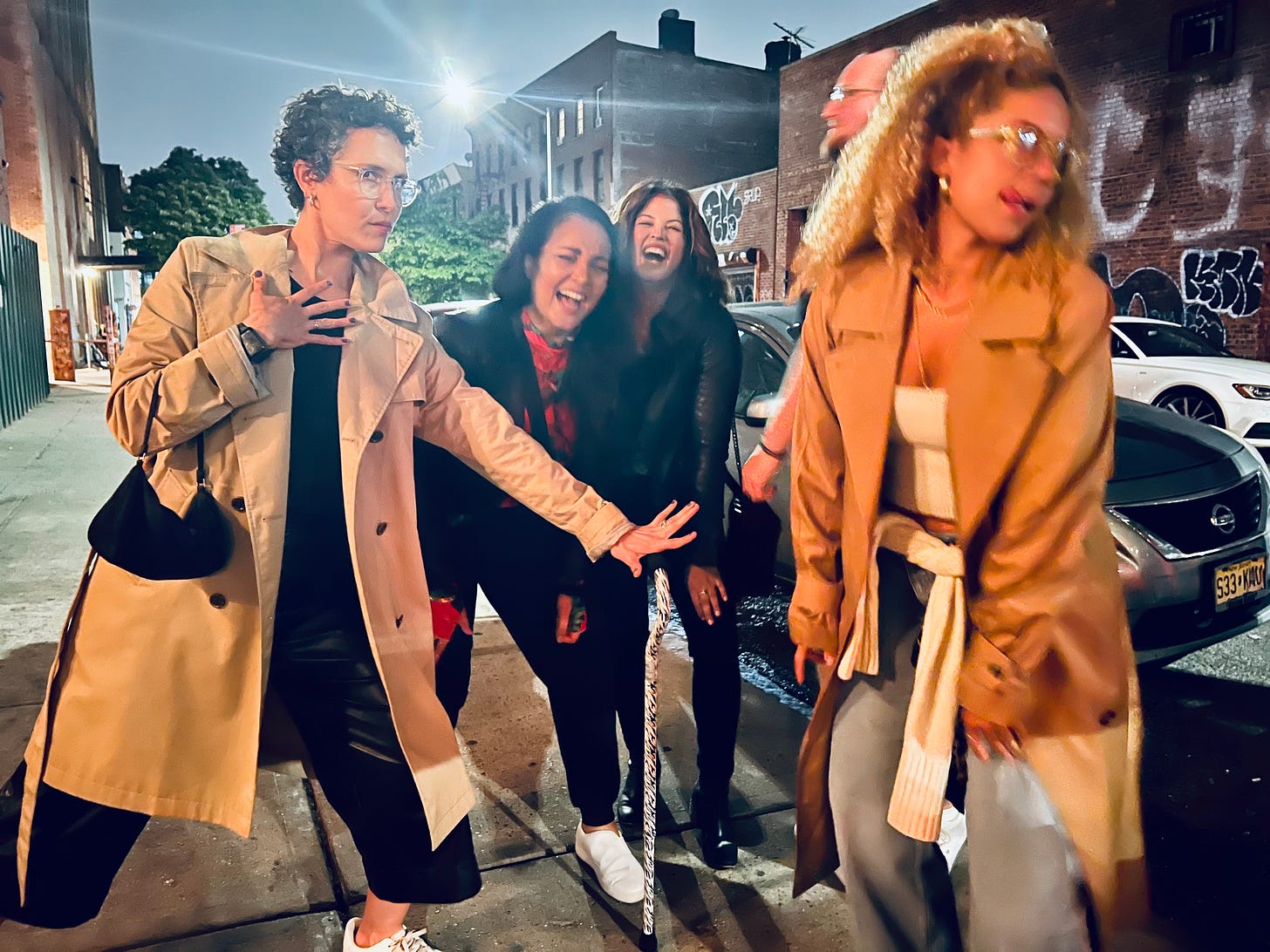how to be activist with adhd
Being alive in 2022 is not small feat. It takes a lot of energy to simply read the news, let alone try and do something about it. Add ADHD to the mix and you’ve got yourself a fun cocktail of brain-fog flavored hot flashes.
I’ve written about having ADHD before and how it can feel like both a gift and a blessing to feel like a bonafide basket case but since Roe got overturned I’ve felt like my typical distraction and impulse control have gotten extra emboldened to ruin my day. I’m used to the flood of intrusive thoughts but lately the volume inside of this bus has been astronomical. On a typical night, I’ll be calmly falling asleep when suddenly I’ll be invaded by a “brilliant solution” to women losing the constitutional right to bodily autonomy. Yes, my barely cogent slurred audio note about serving Ted Cruz vasectomy papers mid-campaign speech is worth me waking up, lest I forget!
The beauty of ADHD is the creativity bursts, but the downside is their timing. It can feel like being a comedian that only comes up with sick jokes but only after everyone leaves. It also can mean having fantastic ideas but systematically failing to see them through. It can come with a ton of shame and lots of frustration from those who work with us. One of the common coping mechanisms for us can be to isolate and try and “fix” an amorphous “it” which only makes us sink deeper in into dysregulation because what we need is not isolation, it’s connection. That’s why when I couldn’t find anything on the internet about strategies to cope with ADHD (which side note is wild to me) while trying to be an engaged citizen I turned to a friend that’s an expert in building community and also just so happens to have ADHD.
When Marianna Martinelli and I met a few years ago at an event space, we immediately bonded over shorteralls and sidebarred about it for an inordinate amount of time. We had hyperfocus about hyperfocus, a common phenomenon when two people with ADHD first meet. She since founded her own community called Grand Trine Studio that helps people find and create community. I knew I needed to feel less alone and get some help so I reached out to her and her answers were just so helpful that I felt like I needed to share them with you too.
LP:How can ADHD impact our ability to get involved in the causes we care about?
Marianna Martinelli: I’d say for us folks with ADHD it's the combination of our tender hearts and desire to TAKE ACTION that can both serve and hinder us. I’ll use two specific examples, in season 1 of the pandemic, like many of you, I was totally overwhelmed by life and the sheer volume of people who needed help. For me, this felt like a desire to do something but then getting deflated because I had so many ideas and so many people needed help and ended up spiraling and inactive. Now, I can't remember where I heard this recommendation, maybe it was Glennon Doyle or maybe I made it up but, when I was in a less swirly place, I thought about what part of all the hurt felt the most tender and what was the smallest atom-sized action I could take to help even one person. So, for me, it was learning about the long-term impact that too-early potty training can have on the mental health of kids and parents; and how many families have to make impossible tradeoff decisions around choosing to diaper their kids OR have food. I could see the very specific moment and people that would help and the direct actions needed to make an impact and I followed that. With the help of a friend, we ended up organizing, collecting and distributing over 7k diapers in Brooklyn + Queens.
So, the TL;DR is: try to listen and observe where your excitement and impulse is taking you. That’s good info! Then see if you can imagine a very small way to get involved or a very specific moment in someone’s life where support would make an impact and chase that. You have good ideas too and its also okay if you don’t overcommit to 100 things. Try 1 first.
LP: What does being an activist on ADHD even look like?
Marianna Martinelli: Well, thank you for speaking about me as an activist. I’d say I’m an activist in the way that almost any person can be one; I felt compelled to share and continue to do so. My fellow neurodivergent cuties might relate that I absolutely love to talk and POUNCE on the opportunity to talk about living and working with ADHD. I’m 40, so I'm at the older spectrum of folks who grew up hearing about “ADD” and during the height of it being totally ridiculed.
What it looks like for me is sharing on social media, telling my story and perspective when and where I can. I appreciate being light hearted about my approach and weave some truth-telling in there when I can. Like many other invisible disabilities, ADHD can be mysterious and/or disbelieved so, if my experience is enlightening or resonates with something you’ve experienced, it's my honor and privilege to do so.
LP: Having ADHD or being neurodivergent also comes with so many great strengths and quirks that can help you be a better activist. What are the strengths that activists with ADHD can bring to the table?
Marianna Martinelli: I feel strongly that neurodivergent folks are some of the most innovative design thinkers out there. We are resourceful because we have to be and naturally challenge the status quo because cookie-cutter approaches to problem solving feel constraining and frankly, offer no serotonin. So I’d say the so-called “different” thinking is an asset.
Along with the different thinking, I’d say that straight-up enthusiasm can be really contagious. As a child I was mocked for being so “excited” about things I cared about. And yet, as an adult, I can look back and see when that “excitement alarm” was sounding. It powered me to pull off really important and impactful things. I can remember organizing a blood drive in high school and I got more people donating than ever before. Same thing has been true for my professional world in building brand communities (like, i love it! It’s awesome!) and in speaking out about ADHD (excitement alarm goes off when I learn something new and am ready to share!)
I recognize neurodivergence manifests differently but, those are my own strengths that have been equally mocked as they have been absolute gifts.
LP: Taking care of yourself can be hard when you feel like so many others need help too. What kind of healthy coping mechanisms can help an an activist with ADHD feel healthier?
Marianna Martinelli: Oof! This is such a tough and important one. Like many folks, especially women, my ADHD coexists with anxiety and depression. The more I’ve learned about how my nervous system was shaped under circumstances that shaped my general operating states to be either JAZZED UP READY FOR AN EMERGENCY or basically falling asleep the more empathy and understanding I have for these creative survival techniques my mind and body created to keep me going.
On the practical side, here are some concrete tools that work for me a good amount of the time (nothing works 100% of the time!!!):
Modified Pomodoro: I listen to this very hippy drum beats track that lasts for 16 minutes. There’s something about the focused window of time and the drums that equal a solid chunk of time for me to focus one a single task. It has the dual purpose of shocking me out of hyper-focus on the wrong task if that happens.
Written Lists of Mini Self Care Practices in Your Eye Line: Out of sight, out of mind is real thing for me. SO! I use the opposite trick. In my sight line at my office I keep a simple list of little mini practices to help me stay calm, and therefore more focused, more present etc. It includes ideas like: “Go take a walk!” “Feel sun on your face!” “Do 3 minutes of breathwork” “Do you feel lonely? Call someone” “Drink some water!” and so on. The idea of fully meditating for 20 minutes 2x a day just doesn’t suit me. These little self-care snacks make the enormity of SELF CARE more manageable for someone like me.
Attempting grace with yourself. Ugh. I know. But, if you’ve just had two consecutive highly-focused days or even a hyperfocused morning and suddenly its the afternoon and you’re feeling spacy. Try recognizing that and finding a little grace or understanding that, your mind just needs a rest and that’s normal, expected and okay.
LP: What’s the last thing that gave you hope?
Marianna Martinelli: My 4.5-year-old kiddo and her caregiver wrote a book about a SeaHorse the other day and one of the transcribed sentences was “She didn’t have a mother or father. She had friends. Her friends were her family.” And phew doggie! That got me. I believe in the wisdom of children and that always gives me hope.
I hope you enjoyed Marianna’s generous energy on this topic and for more advice and guidance about all things ADHD, I recommend The Kaleidscode Society, a community for and by women with ADHD founded by disability expert and American Association of People with Disabilities board member, Margaux Joffe. She interviewed me and many other women who live in ADHD and it’s a wonderful community she’s created.
Have a safe week! x
Liz-






